Like all dried fruits, raisins can be kept for several months when stored properly. This is because of their reduced water content, which extends the shelf life of dried fruit. Wholesale buying and storing raisins in large quantities is therefore no problem at all. However, it’s important to ensure the packaging is air-tight, lightproof and protected from heat sources. Sealed jars and containers are best suited for storing raisins and sultanas. Moisture penetration must be avoided, otherwise mould may form on the raisins.
Raisins and sultanas
Raisins are among the most popular dried fruits in Germany and they are incredibly versatile. At August Töpfer & Co., you can buy raisins and sultanas wholesale for your needs.
- Atco
- Products
- Dried fruits
- Raisins
Raisins and sultanas from August Töpfer & Co.
Raisins are dried fruits made from grapes. The name originates from the French word “roisin” or “rosin” for grape. In general linguistic use, raisins refer to different kinds of dried fruits from various grape varieties, including currants and sultanas. The small, brown and slightly shrivelled raisins have a dark-yellow to brown colour and are suitable for preparing a range of baked goods, dishes, muesli products and confectionery.
As a leading importer of dried fruits, nut kernels and seeds, August Töpfer & Co. is your reliable supplier of raisins and sultanas. We source our raisins and sultanas from our partners in Turkey, the USA, South Africa and China, as well as Iran, Australia and Greece in the spring and autumn. Most of the goods are checked, processed and packed at our production site in Hamburg, allowing us to guarantee you fair prices, high quality and delivery reliability at all times. Our customers include leading European retailers and discounters as well as the confectionery industry.
Raisins, sultanas or currants: what are the differences?
The term raisins is generally used to refer to all dried fruit made from grapes. Depending on the grape variety and type of processing used, however, the individual products differ in terms of colour, size, taste and consistency. The range available from August Töpfer & Co. encompasses raisins, sultanas and currants as wholesale products for individual applications in the food industry.
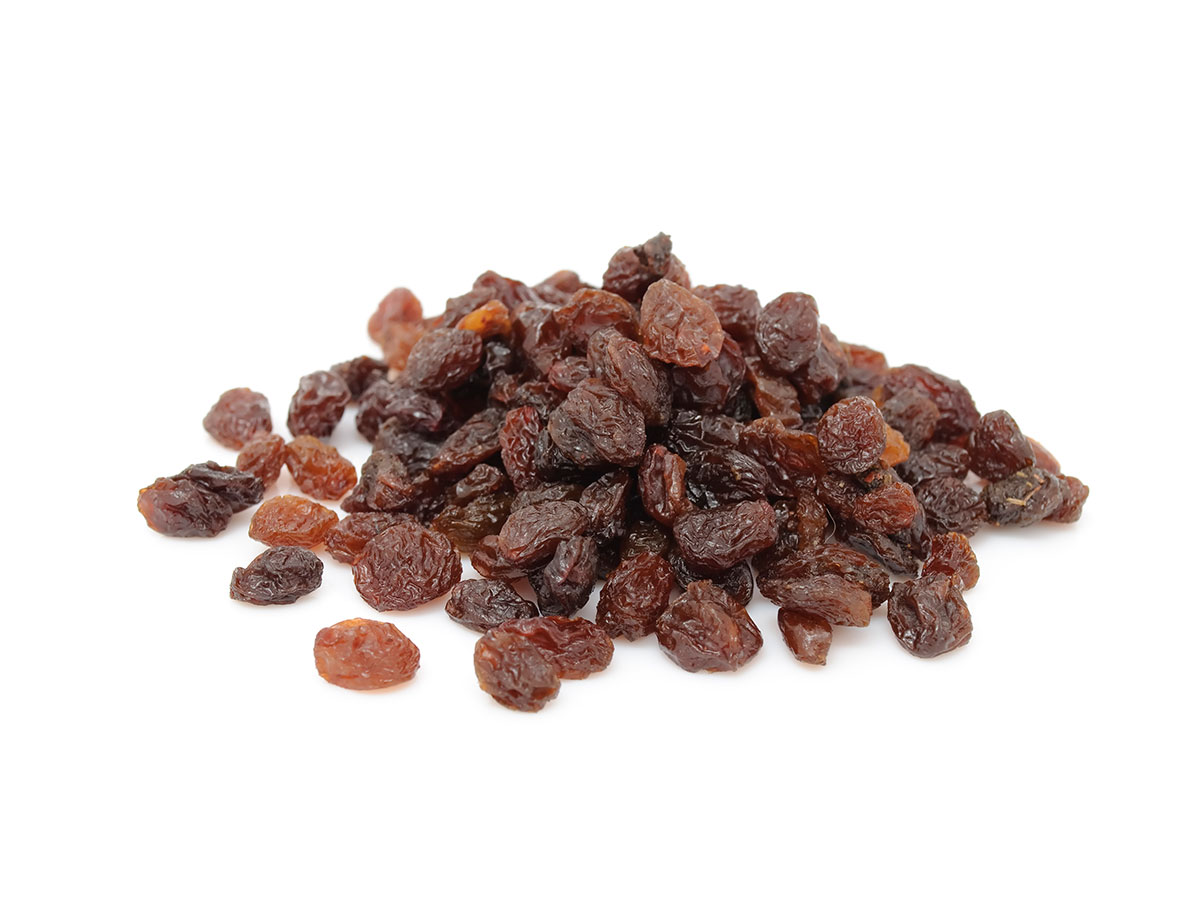
Raisins
You either love them or hate them. Raisins can be found in a wide range of foods. But they are also suitable for eating fresh and are a classic ingredient in trail mixes. In principle, any region with a wine-friendly climate is suitable for their cultivation, although the main regions for cultivating grapes and raisins are in the USA. Both white and red grapes can be used for the production of raisins. Typical grape varieties for making raisins include the Thompson seedless grape, the Malaga grape, the Rozaki grape or the Sultana grape.
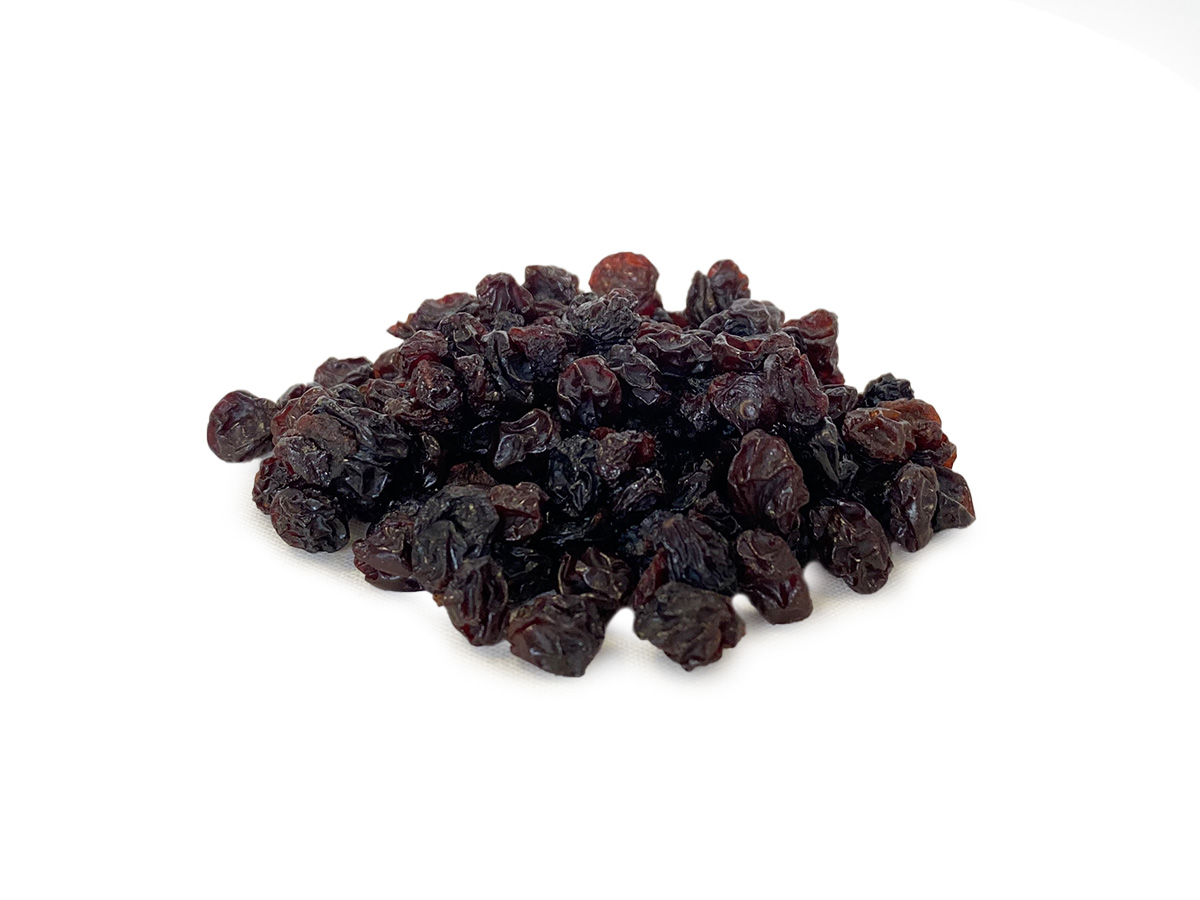
Currants
Currants are usually smaller, darker and somewhat firmer than raisins. They are made from specially selected grape varieties originally cultivated predominantly in the region around the Greek city of Corinth. Today, the USA is one of the top producers of currants. Since currants retain their shape during baking, they are a popular ingredient in baked goods and Christmas cookies. They taste a little more bitter and intense than raisins.
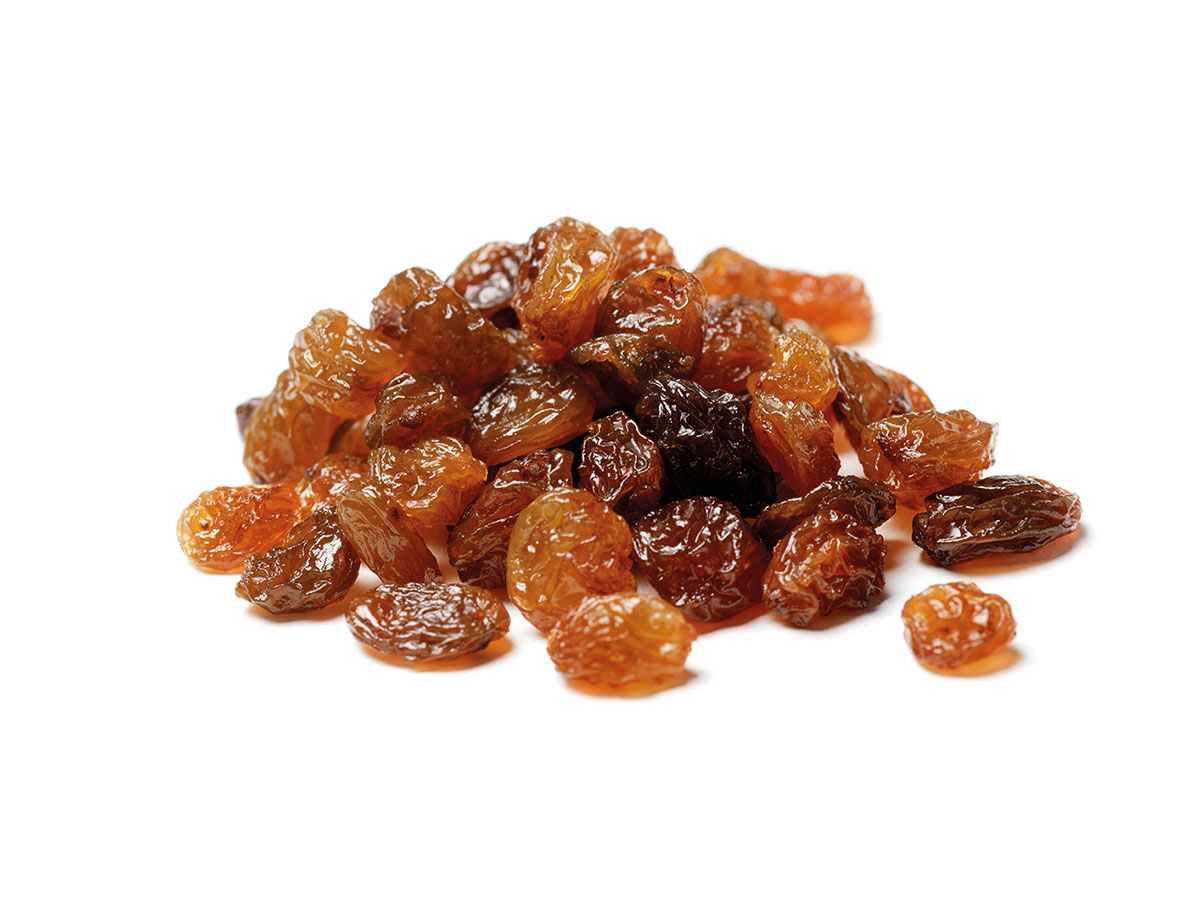
Sultanas
There’s also a difference between raisins and sultanas: sultanas are softer and lighter than raisins and their flavour is very sweet – almost like honey. The grape variety is the same as for raisins, but sultanas are usually dipped in a solution of water or olive oil and potash before drying. This breaks up the wax layer on the peel and shortens the drying time. With an annual production of almost 350,000 tonnes of sultanas, the USA is the biggest producer – followed by Turkey with 200,000 tonnes. Since the USA consumes most of its harvest domestically, Turkey is most relevant with an export share of 90 percent on the world market.
Production of raisins
Grapes are the fruits of grapevines. The cultivation regions for wine are primarily located in warm and dry climatic zones. Most raisins come from Turkey or the USA.
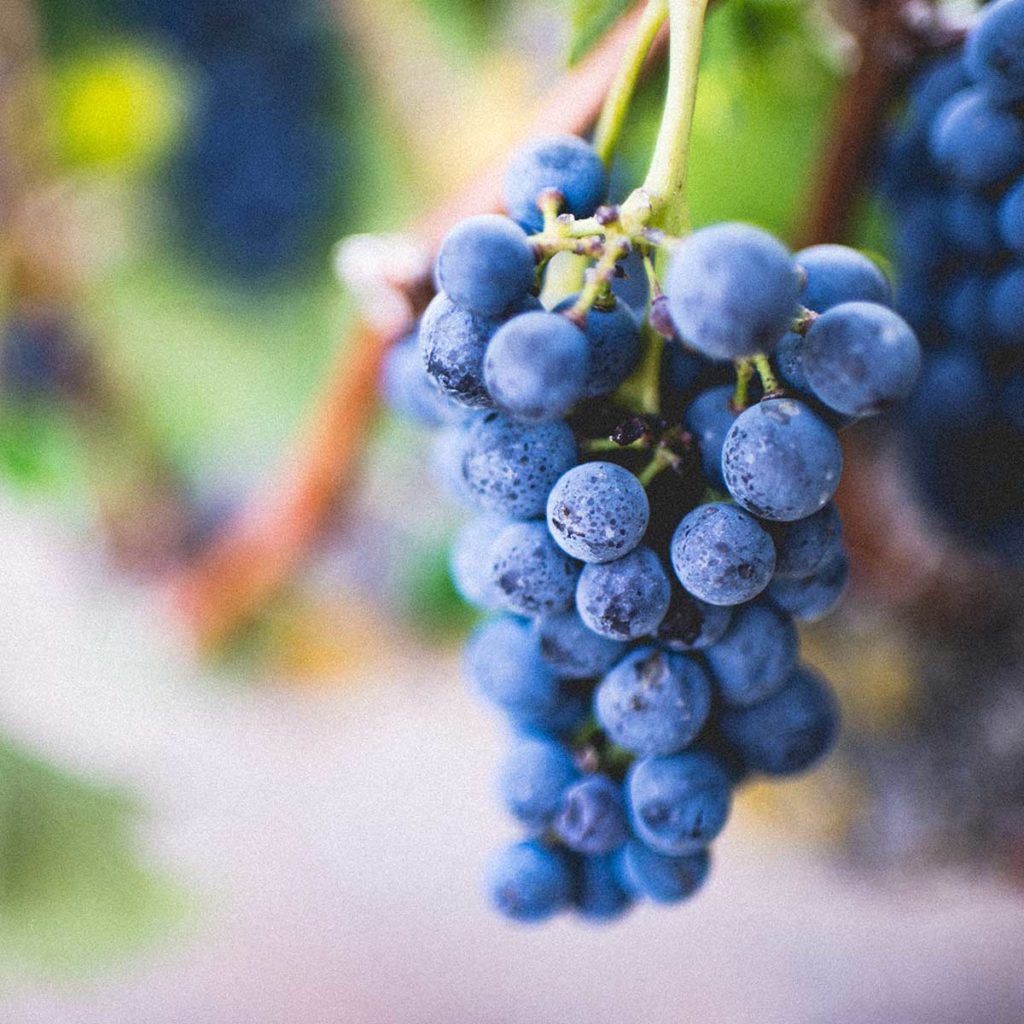
Grapes are the fruits of grapevines. The cultivation regions for wine are primarily located in warm and dry climatic zones. Most raisins come from Turkey or the USA. The round or oval grapes, measuring around one to three centimetres, emerge from the flowers of grapevines through pollination. The grapes are harvested once they have fully ripened and are therefore sweet enough. This is typically the case at the end of September at the earliest. Light shaking – usually by a machine – removes the grapes from the vine. For raisin production, the grapes are first dried for around five to seven days. Dirt, seeds and plant residues are removed afterwards.
They are then dried for a second time. This is traditionally carried out on tarpaulins in the sun. However, raisins are now often dried in facilities under artificial heat sources. The water content at the end of the process is around 15 to 18 percent. Around four to five kilograms of fresh grapes are required for one kilogram of raisins. To extend the shelf life, raisins are frequently treated with sulphur or sulphite. The maximum amount is 1,000 milligrams per kilogram of raisins. At August Töpfer & Co., you can also buy non-sulphurised raisins and sultanas. The addition of a little edible oil prevents the products from sticking together in the packaging. Following quality control, the raisins are packed, further processed if necessary and then sold.
Contents and nutritional value of raisins
Raisins contain hardly any fat, and only all-natural fructose. Although the sugar content is around 60 percent, the sugar is only released slowly and steadily into the bloodstream due to its composition. Especially in combination with nuts and wholegrain products, raisins are therefore ideal sources of energy for sporty and active people. The high fibre content means that raisins and sultanas can contribute to healthy digestion when consumed regularly. Thanks to the quick drying process, raisins still contain many of the essential nutrients originally present in the fruit. For instance, raisins provide various B vitamins as well as potassium and iron. When consumed in moderation, raisins play a role in a health-conscious and balanced diet. However, sensitive people in particular should not consume raisins and sultanas in excess, as the high amount of fibre and fructose they contain can lead to digestive issues.
Raisins ...
- ... as a snack or sweet
- ... in muesli, cereals and bars
- ... in baked goods and sweet dishes
- ... in savoury dishes
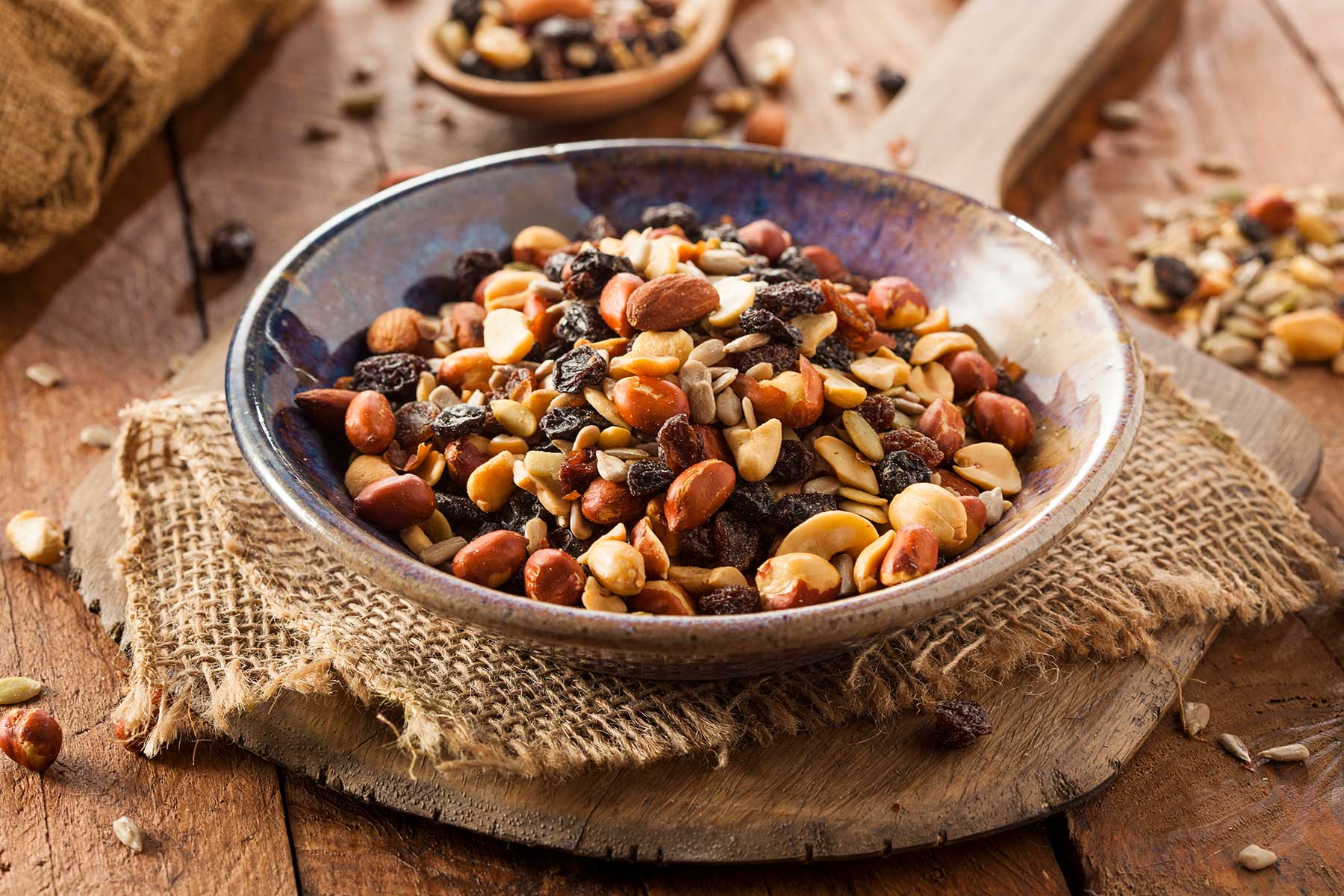 © bhofack2/iStock.com
© bhofack2/iStock.com
... as a snack or sweet
Raisins are popular for good reason: they are cheap, very tasty, provide essential nutrients and fibre, and have a long shelf life, just like all dried fruits. Raisins are therefore the ideal choice for a healthy snack on the go. Raisins and sultanas taste great with nuts, for example as part of trail mixes or other snack mixes. They are also an excellent sweet treat when coated in chocolate, as an ingredient in chocolate bars, preserved in rum or liquor, or as an ingredient in ice cream and desserts.
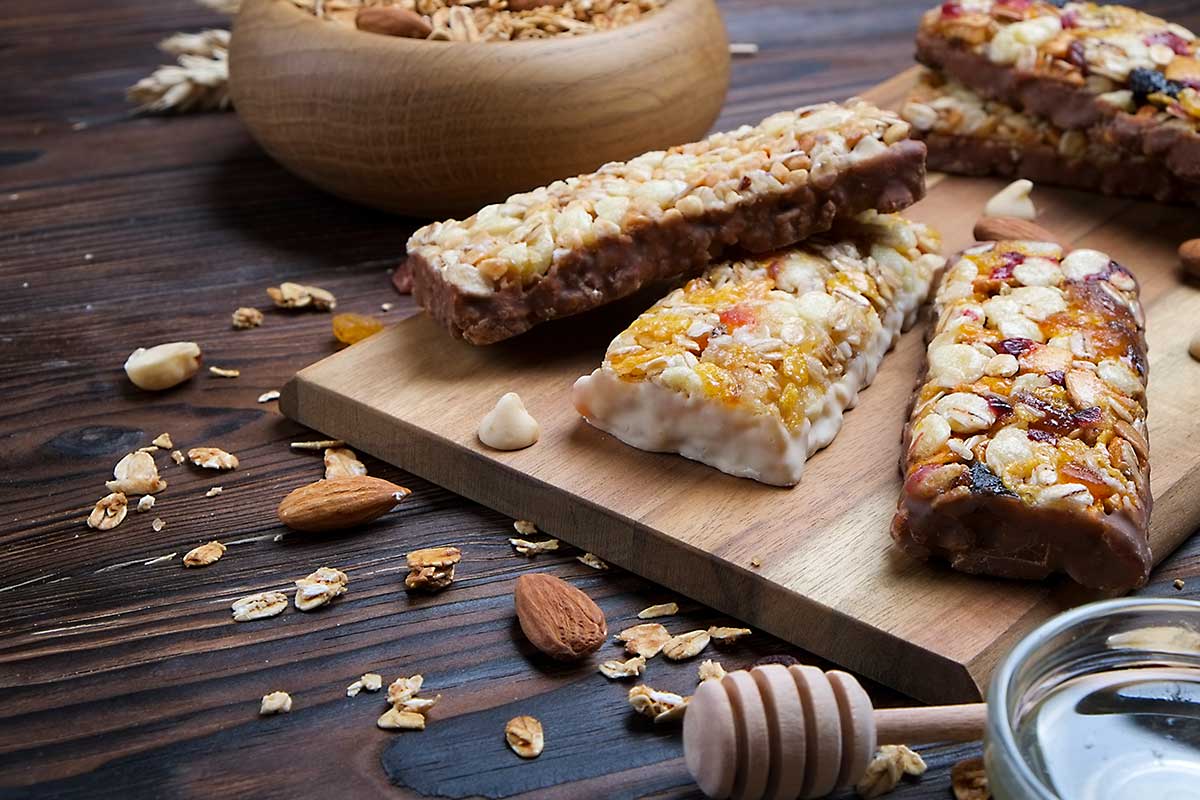 © undefined undefined/iStock.com
© undefined undefined/iStock.com
... in muesli, cereals and bars
With their sweet taste, raisins are a healthy alternative to sugar, honey or maple syrup. They give muesli and breakfast cereals a delicately fruity flavour and contribute to a healthy diet with their additional nutrients. As a natural sweetener and thanks to their soft consistency, they are also suitable for the production of muesli bars, energy balls and other healthy snack options.
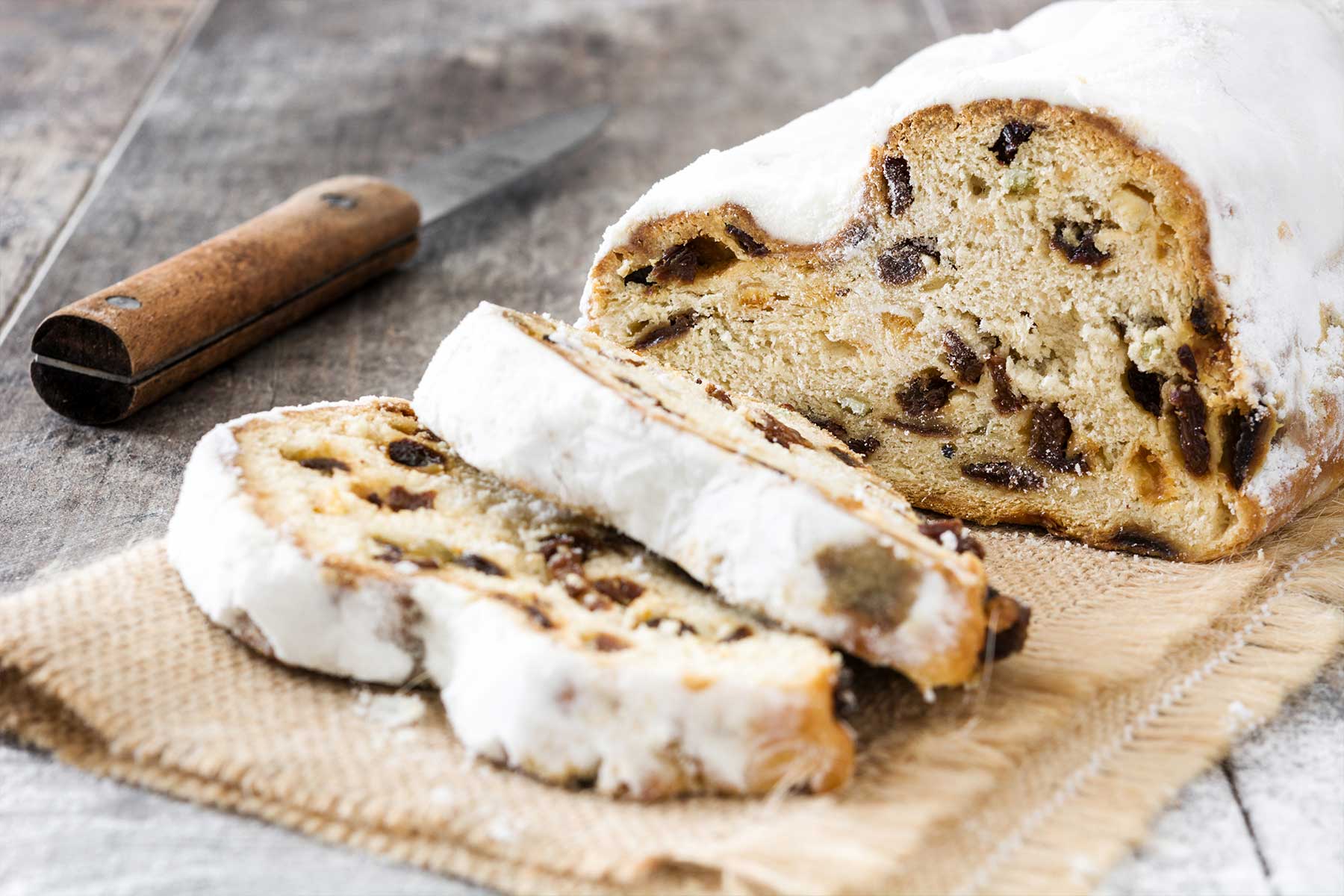 © etorres69/iStock.com
© etorres69/iStock.com
... in baked goods and sweet dishes
Raisins are traditionally used in raised pastries, cakes, pancakes and sweet bakes. Particularly in southern Germany and Austria, they are a key ingredient in kaiserschmarrn, strudel and other pastry confections. They are especially popular when combined with nuts, apples, cinnamon as well as rum. At Christmas time, raisins, sultanas and currants are often found in fruit loaves and as an ingredient for baked apples.
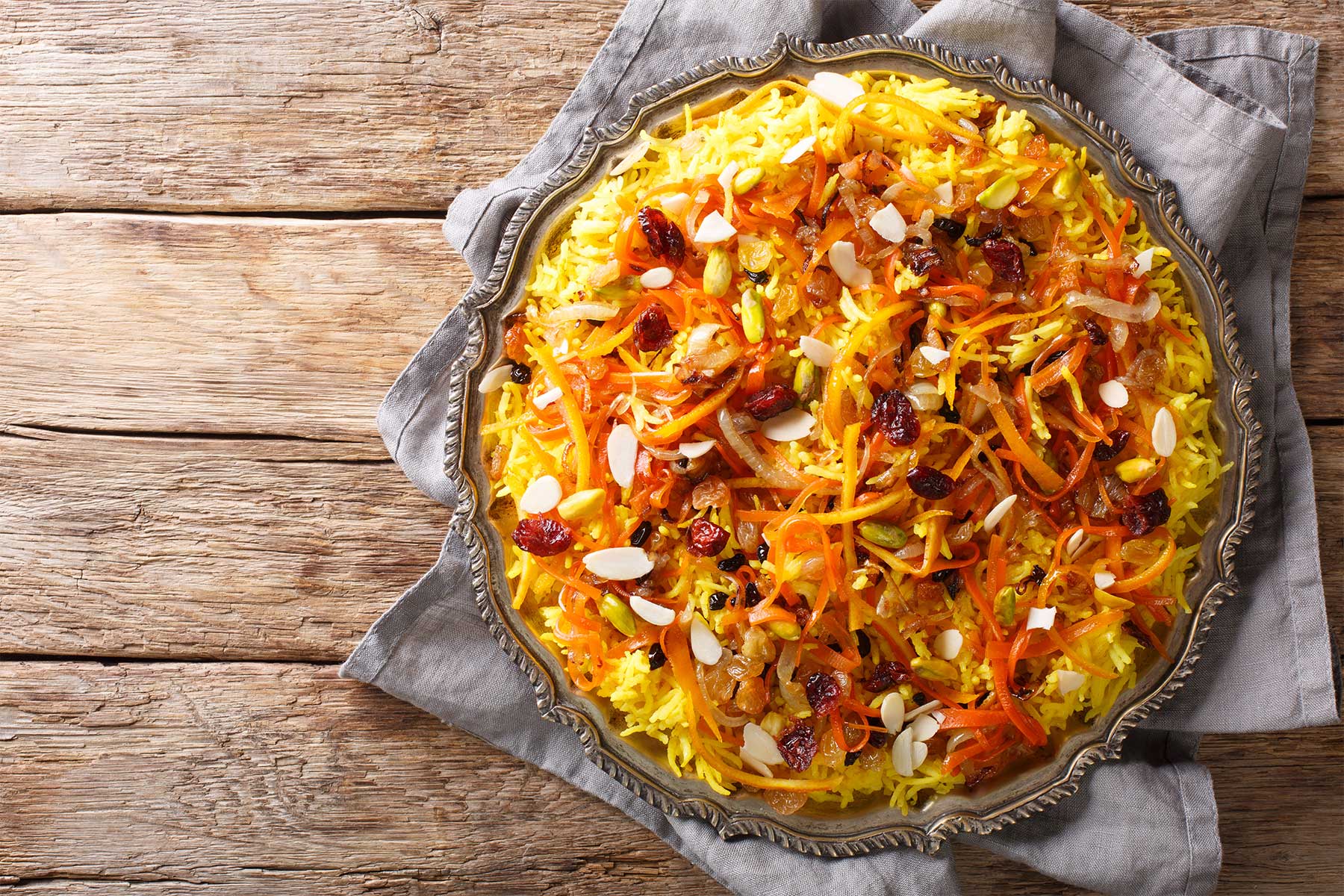 © ALLEKO/iStock.com
© ALLEKO/iStock.com
... in savoury dishes
Raisins are also suitable for savoury dishes and round off salty and sour dishes wonderfully. Besides marinated pot roasts traditionally prepared with raisins, the shrivelled grapes give a fruity-sweet flavour to salads, curries and rice dishes. Raisins and sultanas go well with lamb and game, poultry stuffing as well as dips, spreads and chutneys. Raisins are a common ingredient in savoury main dishes, particularly in Indian, North African and Middle Eastern cuisine.
Raisins: shelf life and storage
Our raisins are certified:

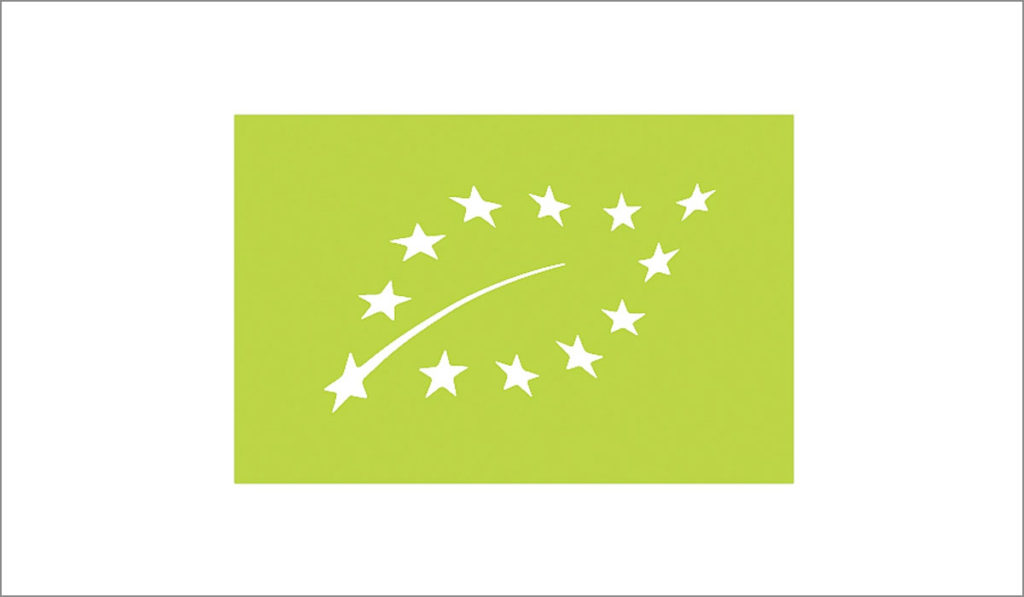
Premium-quality wholesale raisins and sultanas
Order your raisins and sultanas online wholesale and benefit from our many years of experience and top quality at a fair price. We set the highest standards for our products and services. Besides various branded goods, we supply core products for the baked goods and retail snack products segments under our own producer brand “ATCO”. Being a comprehensive food/non-food provider, August Töpfer & Co. offers its customers import, storage, packaging and logistics from a single source. As a brand producer, we create new products in consideration of new statutory packaging regulations. With more than 50 fully automated packing lines, we can respond flexibly to customer needs.
As an experienced international wholesaler and commodity trader in nuts, dried fruits and seeds, we supply customers in Germany, Europe and the rest of the world. Our services are just as diverse as our customers. In addition to supplying small and medium-sized enterprises by the pallet from our various storage locations, we also provide just-in-time delivery of goods to large-scale industry in full containers and trucks. For general questions or enquiries regarding prices and market reports, please contact us via email at: trockenfrucht@atco.de. Our team will be happy to assist you with questions regarding sultanas, raisins and our wholesale range, or to provide you with an individual offer.
